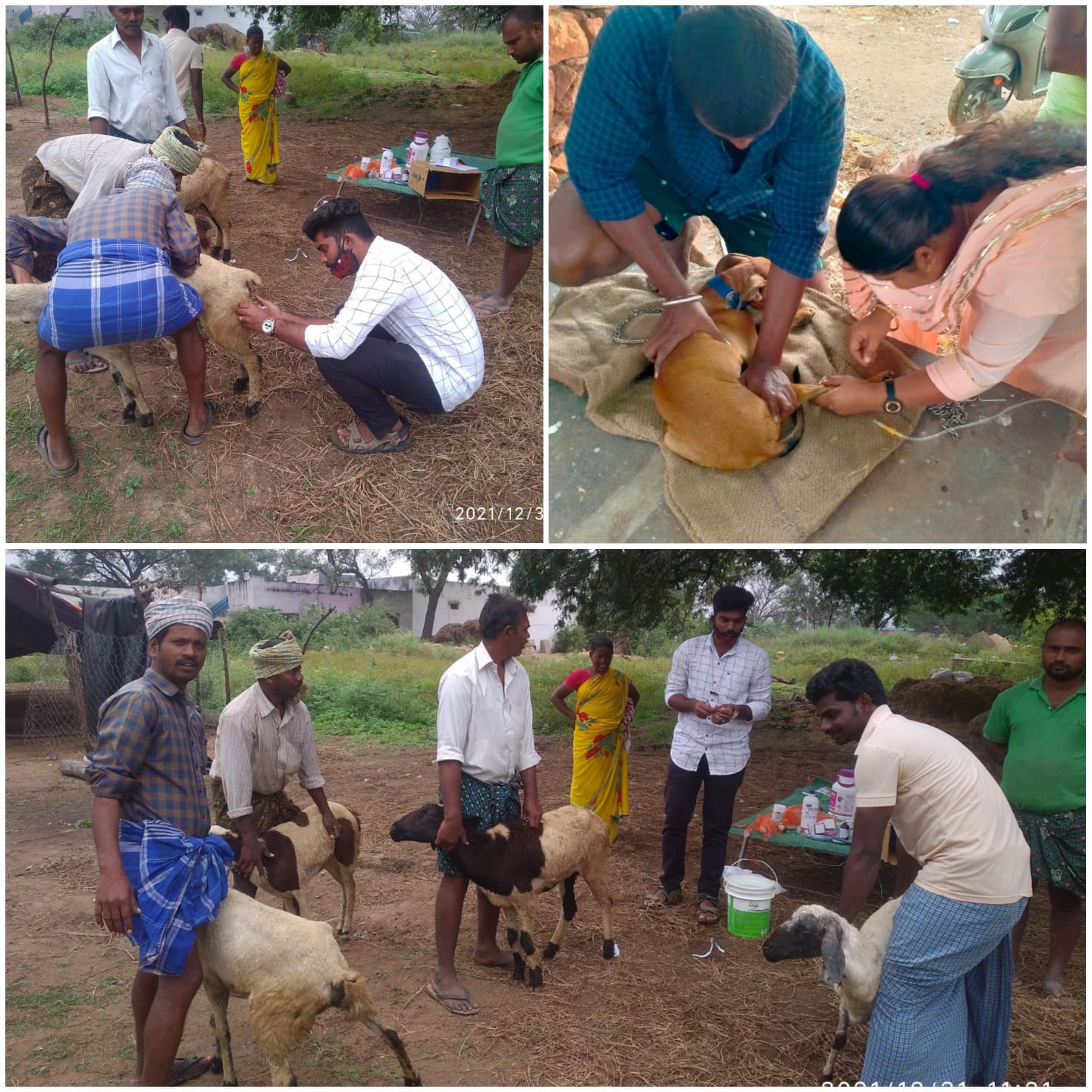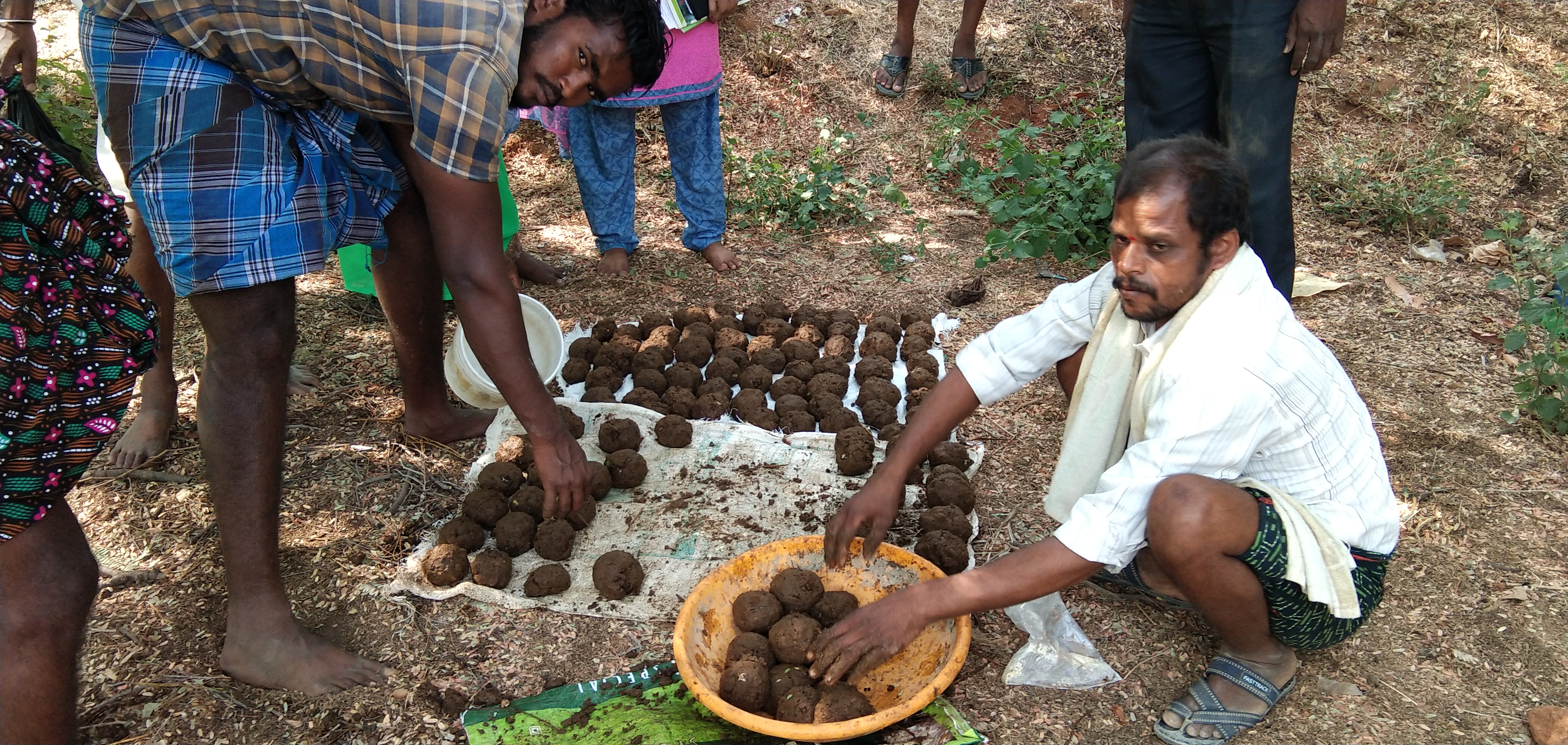Background
Climate change can have a dramatic impact on our natural resources, economic activities, food security, health and physical infrastructure. India is one of the countries most affected by climate change. The threat is especially severe in places where people’s livelihoods depend on natural resources. In such areas climate adaptation measures take on a special significance for safeguarding vulnerable communities and their livelihoods as well as ensuring sustainable development.
Drought results in loss of livelihoods and human suffering at individual and community levels. The impacts of drought vary significantly across small geographical areas, due to variations in weather patterns, differences in soil types, poor water availability, low access to markets and unfavorable social circumstances. It is among the more serious problems faced by the rainfed areas in Ananthapur district. At present about 90% of net sown area in the district is rainfed and is thus drought prone. Every year rain fed farmers are experiencing losses due to extreme drought conditions. The small landholders and landless people migrate to nearby cities due to insufficient livelihood opportunities
People in many parts of arid and semi-arid India have been coping with drought on a regular basis. Depending on their access to and control over resources, knowledge and support systems, the ability to cope with drought varies across individuals and communities. The State Government efforts to mitigate the impacts of drought are largely through thematic interventions in rural development programmes such as the watershed development, zero budget natural farming, millet promotion, horticulture promotion etc. and short-term drought-relief programmes. These measures, however, have not been able to tackle drought in the long term and drought prone areas are still vulnerable to erratic monsoon causing severe hardship to affected communities.
Hence there is need to develop drought adaptation approaches keeping in view, sustainable livelihoods, local contexts and changing climate. A range of climate mitigation and adaptation options combined with thematic solutions at the micro-level would form an appropriate sustainable livelihood approach, especially when dealing with uncertain meteorological conditions in semi-arid regions.
Project Title: Towards Climate Smart Villages: promotion of affordable and replicable adaptation and mitigation practices to enhance livelihoods of vulnerable communities in the Ananthapur District of Andhra Pradesh, India
Project Objective: The main objective of the proposal is to strengthen and support people’s organizations for undertaking mitigation and adaptation measures in the agriculture and allied sectors to cope with climate change in the project villages of drought prone regions in the State of Andhra Pradesh.
Specific Objectives
• Build capacities of people’s organizations and rural communities to plan and implement climate smart initiatives
• Build resilience of vulnerable families through adaptation strategies in the agriculture and allied sectors
• Enhance GHG sinks through agro-forestry on farmers’ and common lands
• Contribute to limiting emissions of GHGs especially in the agricultural sector
• Disseminate information locally, nationally and internationally on the impact of alternative pathways in rural communities to address climate change issues
Project Duration: Three years (March 2019 to Feb 2022)
Project Budget: 2,48,49,588/- INR
Project Area: Muthukuru, Mandhalapalli & Konkallu GPs in Gudibanda mandal and Gopipalli & Patabattalapali GPs in Nallamada mandal, Ananthapur district
Project Donor: AEIN, Luxembourg
Project Target Communities: 800 direct beneficiaries and 1500 indirect beneficiaries consisting of small landholders, women-headed families and vulnerable families. In Gudibanda Mandal, 200 families in each of the three GPs (Muthukuru, Mandhalapalli & Konkallu) and 100 families in each of the two GPs in Nallamada mandal (Gopipalli & Patabattalapali)
The project will be complementary to APDMP in Gudibanda Mandal and leverage resources from other line departments as far as possible in both Gudibanda and Nallamada mandals.
Project Interventions – Mitigation
Climate SMART Agriculture
- • Tank silt application
- • Efficient manure management
- • Dung based inoculants
- • Water management for agricultural production
- • Carbon sequestration from agro-forestry
- • Conservation agriculture
Reducing emissions in the production system
Sequestering additional carbon in agricultural system
• Land use change – mono crops to multiple crops
• Strengthening carbon sinks
• Reducing inorganic pesticide, herbicide usage and promoting organic pesticides
Climate SMART Energy
- • Biogas plants
- • Solar pump sets
- • Solar/LED lamps - street lights and household lighting
- • Energy efficient biomass cooking stoves
Project Interventions – Adaptation
Climate SMART Agriculture
- • Promotion of drought resistant crops and varieties
- • Crop diversification
- • Change in cropping pattern and calendar of planting
- • Improved irrigation efficiency
- • Improved livestock management
- • Income diversification
Climate SMART Nutrition
- • Millet promotion
- • Nutrition and Kitchen gardens
Climate SMART Knowledge
- • Weather, crop & livestock advisory services
- • Training and awareness raising at community level
- • Management information system and monitoring, communication material
Climate SMART Institutions
- • Strengthening of People’s Institutions (Gram Panchayats), Farmer Producer Organizations (FPOs), Women Self Help Groups (SHGs) and Federations
- • Networking locally, nationally and internationally for mutual sharing and learning for higher impact
Expected Results
Agriculture and allied activities:
• Enhanced amount of carbon content in the soil
• Drought resistant varieties promoted at least for three crops
• Increased extent of land under Millet & Pulses cultivation
• Families to consume Millets, Pulses and Vegetables in their diet
• Reduction in pest and diseases due to enhanced soil and shift in cropping pattern.
• Reduction in pesticide usage and increased application of organic pesticides and herbicides
Operational results delivered
• Systems established in the office to provide weather information & advisory services
• Established methods to calculate the reduction in emission in the agriculture sector
• Percentage of reduction of GHG emission
• Reduction in consumption of electricity by the households
• Agro-forestry promoted in 40 hectares of land
Overall results in project area
• Enhanced awareness among the communities and institutions on the environment and climate resilient practices
• Gram Panchayats in the project area committed to make the villages climate resilient
• GP, FPO and VO together plan and execute climate resilient activities
• Mitigation and adaptation of climate resilient strategies implemented by all families in the project area
Material Developed
Case Studies
Year - I
Year - II
Year - III
Video documentation

Drought resistant variety

Animal health camps

Exposure Visit

Five layer model





